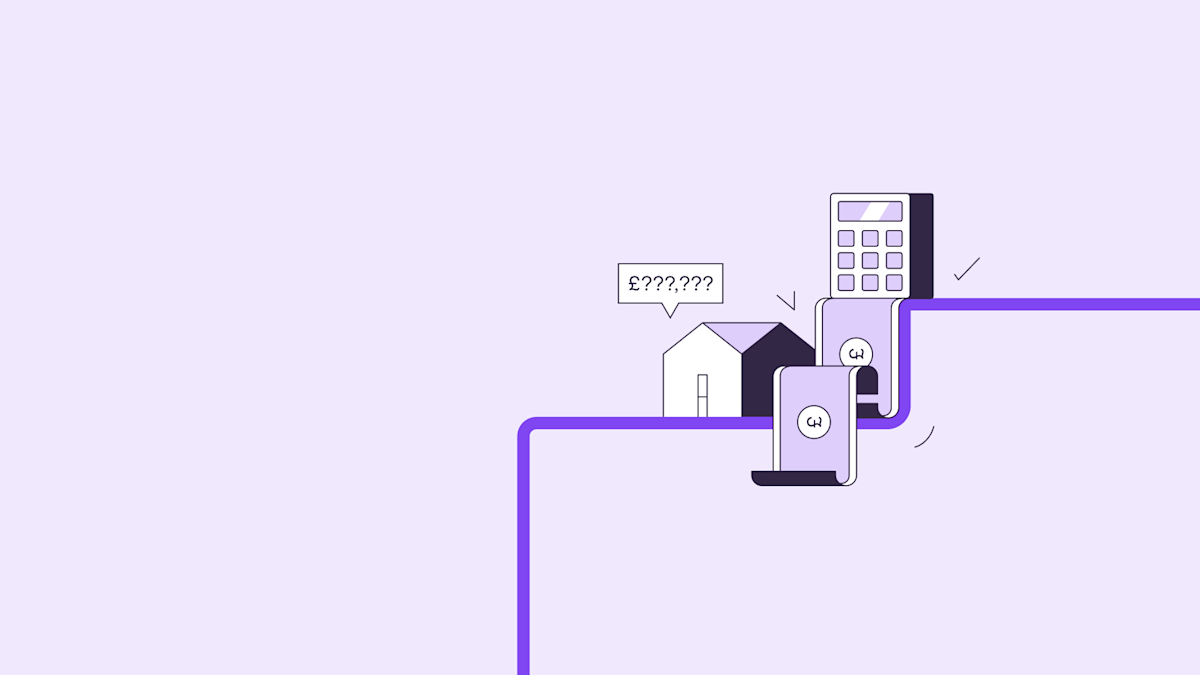What is a first-time buyer?
A first-time buyer is someone getting on the property ladder for the very first time. If you’ve never owned a home before, whether in the UK or abroad, you’re classed as a first-time buyer. That status can come with some handy perks, like reduced stamp duty and access to government schemes designed to make buying your first place a little easier.
What is the First Homes scheme?
First Homes launched in 2021 to help local first-time buyers and key workers onto the property ladder by offering new-build homes at a 30% - 50% discount.
The reduced rates will apply to the homes forever, meaning that buyers on a low household income will continue to benefit every time the property is sold.
The government has pledged a further 10,000 properties will be added to the First Homes scheme every year.
Know your budget in 2 minutes
Discover your maximum borrowing power
Establish your monthly repayments
See homes you know you can afford
With no fees and no credit checks on your finances.

How does the First Homes scheme work?
Say a First Homes property were to have a market value of £200,000. If you're a local key worker, you could buy it with a 30% discount of £60,000, so the property purchase price for you would be £140,000.
That means you won’t have to save for such a big deposit to step onto the property ladder and your mortgage repayments will be lower.
However, when you come to sell the property, the 30% discount you received must be passed on to the next buyer in the local community, who will also need to be a key worker or first-time buyer.
So, if your property were to increase in value by 10% over 10 years to £220,000, you would receive £154,000 from the sale.
Find a new-build home
Looking for a sparkling new-build home? We've got thousands to choose from.

Who is eligible for the First Homes scheme?
The scheme is available to first-time buyers in England who are either local or key workers, or in the Armed Forces.
The definition of key workers includes doctors, nurses and teachers, as well as delivery drivers and supermarket staff.
The scheme is also open to all current members of the Armed Forces, as well as divorced, separated or widowed spouses, and veterans who apply within five years of leaving the forces.
Councils can also set their own definition of a key worker to attract people in professions that are considered to be essential to their local area.

How do I qualify for the First Homes scheme?
To qualify for the First Homes government scheme, you must meet the following eligibility criteria:
You must be a first time buyer. That means that anyone who has ever inherited or been gifted a home is ineligible.
You must earn less than £80,000 (or £90,000 in London), whether you're buying solo or as part of a couple.
The property you’re buying must cost no more than £250,000, or £420,000 in London.
You must already work or live in the area you’re wanting to buy in, or have a local connection to it. Say you grew up there or have family there, for example.
Key workers will be prioritised.
Find new-build developers
We partner with all the UK's major house builders, including Barratt Homes, Taylor Wimpey and Persimmon.
It's never been easier to find and compare new-build developers, all in one place.

What deposit will I need for the First Homes scheme?
Many first-time buyer mortgages require a minimum 5% deposit. So, if your First Homes property costs £200,000, a 5% deposit would equate to £10,000.
A First Homes mortgage will be required for homes purchased under the scheme.
Several national and regional lenders, including big names such as Halifax and Nationwide, have agreed to provide 95% mortgages on properties being purchased under the scheme.
For those wanting more information about a First Homes mortgage it might be worthwhile speaking to a mortgage broker who will be able to see what deals are currently available.
You can also contact the Mortgage Advice Bureau to find out more about First Homes mortgage providers.
Curious what your home's worth? Find out instantly
Whether you're ready to sell or just keeping tabs on the market, get a free online valuation of your property in under 60 seconds. No fuss, just numbers.

How do I apply for the First Homes scheme?
The scheme is still fairly new (it launched in June, 2021) and is currently going through an industry consultation.
That means most of the First Homes in the scheme are still being built or are going through the planning process. The first available properties are expected to hit the market in 2022.
Sadly, unlike with the Government’s Help to Buy initiative, which was launched in 2013 and finishes in March 2023, there is no official portal to register with yet.
Find out more about Help to Buy.
Instead, prospective buyers need to do their own research and seek out the individual developer who is delivering First Homes in their area.
That said, your local authority should publicise when and where First Homes are being built in your area.
Are there any downsides to the First Homes scheme?
Taking part in the scheme involves quite a bit of research. There isn’t yet a centralised website where you can easily find information out about First Homes and where they're being built.
Instead, the onus is on the buyer to do the legwork and find out which builders are providing First Homes in their area.
Any profit margins for a First Homes buyer are likely to be reduced when they come to sell, as the discount must be passed on to the next buyer when the property is sold.
Search new-build properties for sale
How much could my mortgage repayments be?
Get a quick idea of how much it's going to cost each month or how a rate change could affect your monthly payments.

More first-time buyer schemes in 2025
There are plenty of schemes out there designed to give first-time buyers a helping hand onto the property ladder:
2. The mortgage guarantee scheme
4. The Shared Ownership scheme
Can you mix and match first-time buyer schemes?
Good news, you can often combine certain schemes to make your first home even more affordable.
For example, you can use:
First Homes scheme & Lifetime ISA (LISA): put your LISA savings towards your deposit and still get that First Homes discount.
First Homes scheme & Mortgage Guarantee scheme: this helps you grab a 95% mortgage on top of the discount.
However, you can’t combine the First Homes scheme with Shared Ownership or Help to Buy, as these work in different ways and aren’t compatible. Always check the specific terms of each scheme to see what’s allowed.

